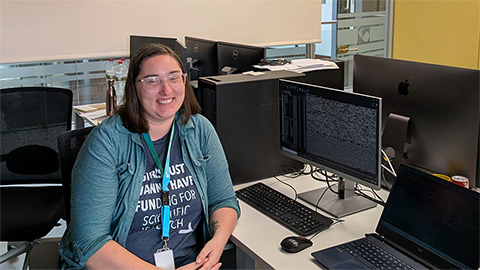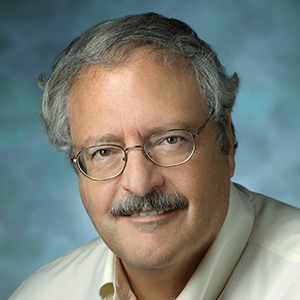Beware the unintended consequences of mandatory open access
In 2018, a group of research funding organizations with the support of the European Research Council, or ERC, launched cOAlition S, a plan to require full open access to published research papers on work they had funded.
Their mandate: “With effect from 2021, all scholarly publications on the results from research funded by public or private grants provided by national, regional and international research councils and funding bodies, must be published in Open Access Journals, on Open Access Platforms, or made immediately available through Open Access Repositories without embargo.”
Most major funding agencies in Europe have endorsed this plan.
While the American Society for Biochemistry and Molecular Biology favors moving toward a model where scientific literature is freely available to everyone (open access), the fact remains that someone has to pay for the reviewing, redaction, quality control and eventual publication of research findings. Under the current system, most publication costs (at least in the U.S.) are born by library subscriptions, helping keep authors’ costs to a minimum. At U.S. universities, library subscriptions are paid by indirect costs (finance and accounting, or F&A) that funding agencies provide to the universities within grants.
As stated in one of the Plan S 10 key principles, “Where applicable, Open Access publication fees are covered by the Funders or research institutions, not by individual researchers; it is acknowledged that all researchers should be able to publish their work Open Access.”
Thus far, U.S. funding agencies, such as the National Institutes of Health and the National Science Foundation, have not adopted Plan S, but it seems likely that open access eventually will become mandatory worldwide for scientific literature.
ASBMB journals are already open access. In the Journal of Biological Chemistry, the Journal of Lipid Research, and Molecular & Cellular Proteomics, the papers in press, or PIPs, go online the day they are accepted, and they remain online for free indefinitely. However, this model is not acceptable to Plan S proponents, who demand that the final redacted versions of papers also must be available for free.
Another key principle listed in Plan S: “The Funders do not support the ‘hybrid’ model of publishing. However, as a transitional pathway towards full Open Access within a clearly defined timeframe, and only as part of transformative arrangements, Funders may contribute to financially supporting such arrangements.”
If open access for final versions of papers is mandated across the board, libraries will no longer need to pay to subscribe to journals. In the U.S., all costs of publication will need to be borne by authors, generally from direct costs from grants. The cost to authors to publish likely will increase substantially.
Mandated open access benefits for-profit publishers, several of whom already are making lots of money from open-access journals. These publishers, especially the so-called high-impact journals and their cascade journals, can receive exorbitant funds to publish a paper, and the more papers they publish, either in the parent journal or its cascade siblings, the more money they make. One side effect is that the quality of publications might drop because more money is to be made by publishing more papers.
In contrast, complete open access likely will have a deleterious effect on scientific societies, and small societies with limited budgets will be hit particularly hard. Most societies are nonprofit, but they do use some of the funds generated by their journals to support science, such as travel awards for students, community outreach and education, as well as to advocate for government support of scientific research. Open access not only will eliminate funds used for these functions, but many specialty journals published for or by small societies likely will cease to exist due to lack of revenue.
If complete open access of the type mandated by Plan S is adopted within the U.S., then the NIH, the NSF and other U.S. funding agencies must follow a model like that set forth by the European agencies and provide funds to help defray the cost of publication. Perhaps indirect costs (F&A) supporting library subscriptions might be redirected to help keep costs low for authors publishing in open-access journals?
It is aso important that we scientists not allow the for-profit publishers to demand exorbitant fees to publish in their journals. These publishers can, and often do, demand lots of money to publish simply because we scientists continue to play the impact factor game — even though nearly all of us agree that a journal’s impact factor says nothing about the quality of papers published in it.
Enjoy reading ASBMB Today?
Become a member to receive the print edition four times a year and the digital edition monthly.
Learn moreGet the latest from ASBMB Today
Enter your email address, and we’ll send you a weekly email with recent articles, interviews and more.
Latest in Opinions
Opinions highlights or most popular articles

Women’s health cannot leave rare diseases behind
A physician living with lymphangioleiomyomatosis and a basic scientist explain why patient-driven, trial-ready research is essential to turning momentum into meaningful progress.

Making my spicy brain work for me
Researcher Reid Blanchett reflects on her journey navigating mental health struggles through graduate school. She found a new path in bioinformatics, proving that science can be flexible, forgiving and full of second chances.

The tortoise wins: How slowing down saved my Ph.D.
Graduate student Amy Bounds reflects on how slowing down in the lab not only improved her relationship with work but also made her a more productive scientist.

How pediatric cataracts shaped my scientific journey
Undergraduate student Grace Jones shares how she transformed her childhood cataract diagnosis into a scientific purpose. She explores how biochemistry can bring a clearer vision to others, and how personal history can shape discovery.

Debugging my code and teaching with ChatGPT
AI tools like ChatGPT have changed the way an assistant professor teaches and does research. But, he asserts that real growth still comes from struggle, and educators must help students use AI wisely — as scaffolds, not shortcuts.

AI in the lab: The power of smarter questions
An assistant professor discusses AI's evolution from a buzzword to a trusted research partner. It helps streamline reviews, troubleshoot code, save time and spark ideas, but its success relies on combining AI with expertise and critical thinking.

